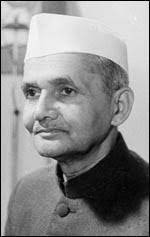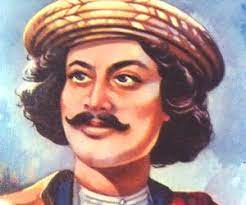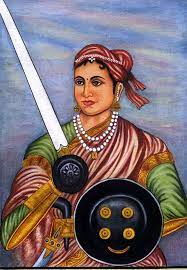 “We believe in the dignity of man as an individual, whatever his race, color or creed, and his right to better, fuller, and richer life.”
“We believe in the dignity of man as an individual, whatever his race, color or creed, and his right to better, fuller, and richer life.”
Born during the pre-independence era in a Brahmin family of Varanasi, Shri Lal Bahadur Shashtri was a notable leader of India. A firm believer and staunch follower of Mahatma Gandhi’s principles, the seeds of India’s freedom struggle were imbibed in his mind at a tender age of eleven. He joined the Non-cooperation Movement called out by Gandhiji when he was just 16 years old. In 1930, he joined the Salt Satyagraha movement, which led to his imprisonment for almost two years.
He served as the Prime Minister of India from June 9, 1964 to January 11, 1966, with an illustrious career in politics. His slogan “Jai Jawan Jai Kisan” was an acknowledgement to the significant contribution made by the soldiers and farmers of India, the pillars on which the country’s security and economic growth stood. Soft spoken, humble, yet firm and responsible; his work in both pre- and post independent India speaks volumes of his character and integrity.
Before serving as the prime minister, Shastri had made major changes as a Transport Minister too. He introduced and provided for female drivers and conductors. Besides, as a Home Minister, he was instrumental in setting up the first committee for prevention of corruption. He was actively involved in ending the dowry and caste system. He was also accredited to the success of White Revolution for boosting milk production in the country.
“The basic idea of governance, as I see it, is to hold the society together so that it can develop and march towards certain goals.”
His career as a Prime Minister was unfortunately cut short due to his death at Tashkent, Uzbekistan (then a part of Soviet Union) in 1966. Although official records say that he died due to an heart attack, his death remains shrouded in mystery, given the unusual circumstances, with many conspiracies claiming that it was a deliberate attempt.
Posthumously, he was awarded the Bharat Ratna in 1966. Many charitable and educational institutes are named after him in recognition of his national services. The Lal Bahadur Shastri National Award is a prestigious award given to individuals who have achieved excellence in their profession, business, or social work.
Yet, in his thirty years of tenure of service to our country, he remains undoubtedly the leader with highest morals with a contribution that will keep us indebted forever.
“I am not as simple as I look.”
Birth Score – 4/5
Pride Score – 5/5
An impressive 9/10 Notable Brahmin Score.
 “Truth and Virtue do not necessarily belong to wealth and Power and distinctions of big mansions”
“Truth and Virtue do not necessarily belong to wealth and Power and distinctions of big mansions” “Meri Jhansi nahi doongi!”
“Meri Jhansi nahi doongi!” “We believe in the dignity of man as an individual, whatever his race, color or creed, and his right to better, fuller, and richer life.”
“We believe in the dignity of man as an individual, whatever his race, color or creed, and his right to better, fuller, and richer life.”